Decades: Compiling the Ultimate Library with Elizabeth Haynes
Another week has flown by and today I have the pleasure of introducing a new guest who is tasked with the challenge of nominating five new books to be added to my Decades Library. If you haven’t encountered my Decades Library yet then a quick recap will help.
Each week I ask my guests to select five unmissable books which they would want to see added to the Ultimate Library. I began this challenge with zero books and week by week the shelves are filling with some truly amazing titles. If you want to see all the books which have been recommended you can see (and buy) them here: https://uk.bookshop.org/lists/grab-this-book-the-decades-library
Picking five books just seemed a bit too easy though so I added a second rule: each guest must only select one book per decade from five consecutive decades. So their final five choices will come from any 50 year publication span. Flexing of the rules is quite commonplace as you will see in the very near future.
This week I am delighted to pass the Decades curator’s hat to Elizabeth Haynes. Elizabeth was one of the first authors I met after I began blogging. Thanks to the brilliant Encounters festival which North Lanarkshire ran I got to head to Motherwell Library to hear her talking about her books. A fabulous evening was had and if, in future, you get a chance to see Elizabeth at any events make booking your ticket a priority.
Enough from me, let me hand you over to Elizabeth so she can share her five selections:
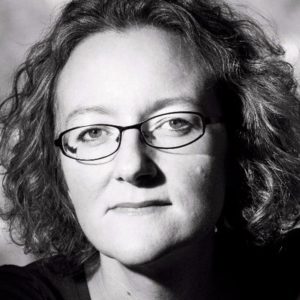 Elizabeth Haynes is a former police intelligence analyst who lives in Norfolk with her husband and son. Her first novel, Into the Darkest Corner, was Amazon’s Best Book of the Year 2011 and a New York Times bestseller. Now published in 37 countries, it was originally written as part of National Novel Writing Month (NaNoWriMo), an online challenge to write a 50,000 word novel in the month of November.
Elizabeth Haynes is a former police intelligence analyst who lives in Norfolk with her husband and son. Her first novel, Into the Darkest Corner, was Amazon’s Best Book of the Year 2011 and a New York Times bestseller. Now published in 37 countries, it was originally written as part of National Novel Writing Month (NaNoWriMo), an online challenge to write a 50,000 word novel in the month of November.
She has written a further three psychological thrillers—Revenge of the Tide, Human Remains and Never Alone—and two novels in the DCI Louisa Smith series, Under a Silent Moon and Behind Closed Doors.
Next came her highly praised historical novel The Murder of Harriet Monckton (a Sunday Times Summer Read) which is based on the 1843 unsolved murder of a young school teacher in Bromley, Kent.
Elizabeth’s latest novel, You, Me and the Sea is a contemporary story of love and redemption set on a remote, windswept Scottish island.
DECADES
At the time of writing, I’m four days away from my 50th birthday. I suspect most of Gordon’s guests have also gone through the internal battle wondering where to begin; I suppose the impending half-century made this decision easier for me! So I’ve decided to use the first five decades I was here and use this as a wee self-indulgent trip down memory lane…
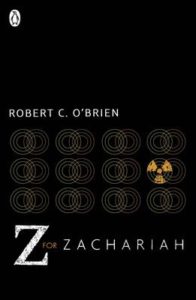 1970s: Z for Zachariah, by Robert C. O’Brien (1974)
1970s: Z for Zachariah, by Robert C. O’Brien (1974)
I was born in 1971 so I’ll admit I didn’t read this book until the early 1980s, but it has stayed with me ever since. It’s a post-apocalyptic story of a girl surviving in a remote, sheltered valley, managing quite well on her own and assuming everyone is dead, until a stranger in a haz-mat suit turns up and suddenly everything becomes a lot scarier.
I read a lot of science fiction as a teenager. In particular I loved Ray Bradbury’s short stories, which made me want to write, not for anyone else, just for myself: the joy of creating worlds, inventing people and giving them problems to solve, kept me busy. I think as an only child, and at times quite lonely, inventing people and putting words in their mouths was a form of social interaction. And yes, before I discovered fiction, I did have imaginary friends.
I remember reading Z for Zachariah in a cupboard. Our spare room had a giant, built-in cupboard in the void above the staircase (I say giant, I guess it was about a metre square in terms of floor space) and I built a ‘den’ in there out of stored blankets and old pillows. This was my reading haven in which I could imagine any possibility, including a nuclear holocaust.
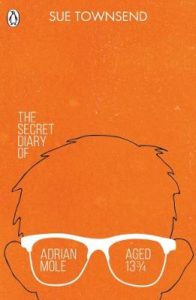 1980s: The Secret Diary of Adrian Mole Aged 13 ¾, by Sue Townsend (1982)
1980s: The Secret Diary of Adrian Mole Aged 13 ¾, by Sue Townsend (1982)
Like Adrian, I was an avid secret diary keeper – I still am – and I saw a lot of myself in him. The desperate desire to be liked, to belong, to understand what adults really meant and how the world worked. My parents also divorced and the effect on me is something I’m only really understanding now – at the time it was just something profoundly life-changing that happened, over which I had no control. Aside from that – finding my identity through a fictional diarist – the book was just tremendously funny, which was very helpful.
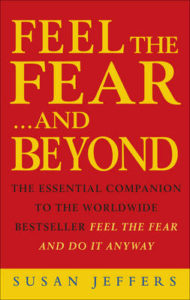 1990s: Feel the Fear and Beyond: Dynamic Techniques for Doing it Anyway, by Susan Jeffers (1998)
1990s: Feel the Fear and Beyond: Dynamic Techniques for Doing it Anyway, by Susan Jeffers (1998)
Cheating a little, because Feel the Fear and Do it Anyway was originally published in 1987, but I only got to read it in the 1990s. This was the decade in which I finished university and started on the career ladder, mainly in temp admin jobs, but notably also selling cars (my first ever job). It’s fair to say I had very little self-confidence, and Susan Jeffers proved to be quite an eye-opener when I read it. It became the book that I gifted to everyone for many years. I still re-read it regularly now. The message behind it is so simple and true: life is so very much better if you can be a little bit brave.
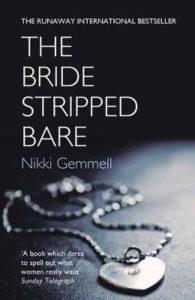 2000s: The Bride Stripped Bare, by Nikki Gemmell (2003)
2000s: The Bride Stripped Bare, by Nikki Gemmell (2003)
In the wake of the ‘Fifty Shades’ fever that gave us all permission to enjoy erotic fiction and talk about it afterwards, The Bride Stripped Bare was presented as being ‘perfect for fans of Fifty Shades’ and used a similar styling (along with countless others) – which is a bit of a shame. Originally it was published anonymously, which added to the intrigue, but what sets it apart is that this book is beautifully written. It’s the story of a misfit couple on honeymoon in Marrakech, and the way the relationship unravels afterwards. Told almost directly from the consciousness of the woman, it’s deep and lyrical and searingly beautiful. I’ve never found a writer who is able to speak that truth in quite such a powerful way. This is the sort of writing that I absolutely aspire to.
 2010s: All The Light We Cannot See, by Anthony Doerr (2014)
2010s: All The Light We Cannot See, by Anthony Doerr (2014)
This is the decade in which I was published, and it’s so tempting to choose any one of the brilliant books I’ve read by authors that I now think of as friends, but to do so would be to leave out so many others. It’s a hard choice to make! So I’m going with a book I only read recently, late to the party as always – the tale of Marie-Laure and Werner, teenagers on opposite sides of global conflict, but with so much in common. When they eventually meet – all too briefly – it feels like a pivotal moment for the whole world.
Thank you to Gordon for letting me join in the Decades challenge! And thank YOU for reading. I hope I’ve given you some inspiration for choosing your next book….
DECADES WILL RETURN